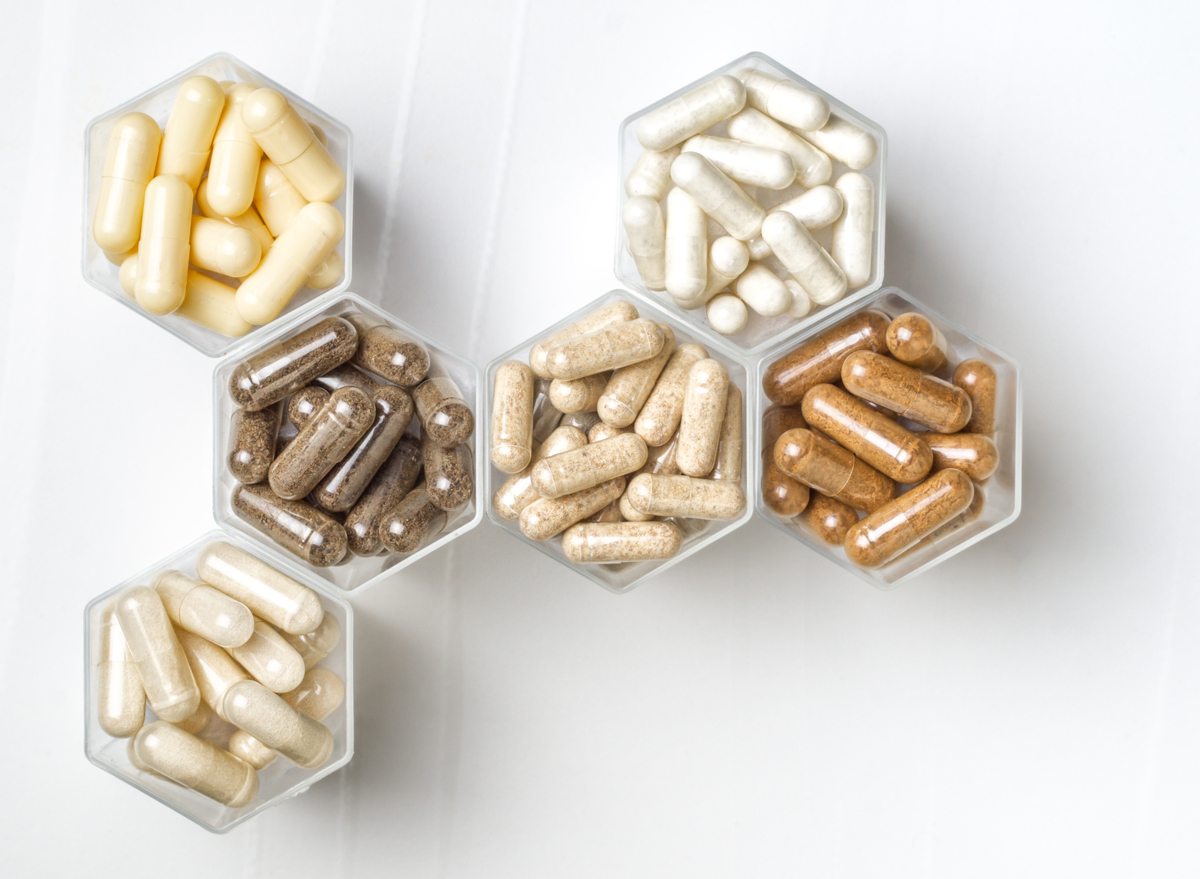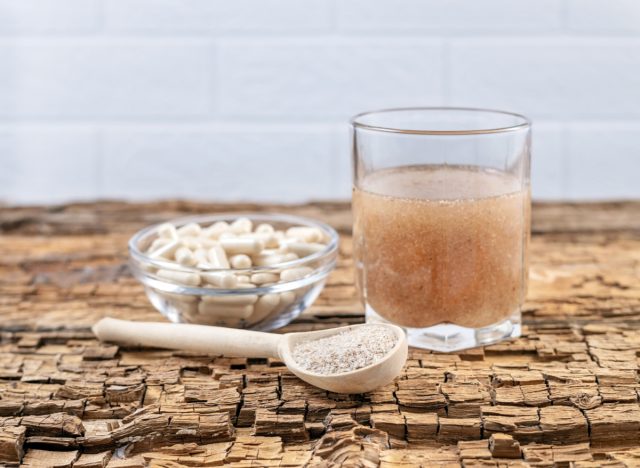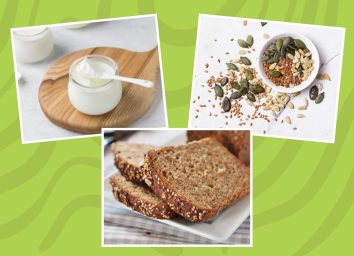The #1 Best Supplement to Lower Cholesterol, Says Science

High blood cholesterol can be a factor of lifestyle, genetics, or a combination of the two, but no matter the origin, it is important to put effort into lowering your cholesterol levels to protect your health. Research indicates high levels of cholesterol can contribute to the narrowing of arteries, and increase your risk of a heart attack, stroke, and other heart and vessel conditions. Food choices and exercise are two factors that can improve cholesterol levels, and when it comes to supplements, you will see many that tout their cholesterol-lowering benefits; however, the best supplement to lower cholesterol is soluble fiber.
You have likely heard of fiber, but did you know there are two primary forms of this essential nutrient?
Insoluble fiber is the type that helps create bulk in your digestive tract, contributing to satiety and allowing for more digestive regularity.
The other form, soluble fiber, is found less frequently in food sources and is the type that is most beneficial for lowering blood cholesterol. The mechanism behind soluble fiber is its ability to bind to cholesterol-containing compounds in the digestive tract to keep cholesterol from being absorbed into the bloodstream. In turn, you will have less circulating cholesterol and, over time, this could bring down blood cholesterol levels.
While soluble fiber can be found naturally in foods, like beans, avocado, berries, and oats, you will typically see fewer grams present than insoluble fiber. This is why a supplement can be so helpful, especially for those who may not eat soluble fiber-rich foods on a regular basis.

How much soluble fiber do you need to decrease cholesterol?
Data suggests five to 10 grams, or more, of soluble fiber per day can decrease LDL cholesterol (the more worrisome form of cholesterol) in your blood. When searching for soluble fiber supplements, you will likely come across many options. Inulin, methylcellulose, and psyllium are the most common fiber sources in supplement products, and can all help toward your cholesterol-lowering goal.
Additional eating and drinking tips to lower cholesterol.
In addition to taking a daily soluble fiber supplement, lifestyle improvements will also help enhance your efforts. Along with your supplement, consider adding more fiber-rich foods to your meals and snacks, swap some of your animal proteins for plant-based options, like soy and beans, and increase your intake of healthy fats, like nuts, seeds, olive oil, and avocado.
Lastly, make sure you are drinking plenty of water to help your body process the fiber, and try to partake in cardio-style exercise several times per week.
Takeaway
Supplements are not a cure-all for serious health conditions, but they can contribute to improved health metrics, and are especially helpful when combined with healthy lifestyle choices.
If you are considering taking a fiber supplement to improve your cholesterol levels, have a discussion with your physician to learn if cholesterol-lowering medication is also indicated for the best health outcome.









